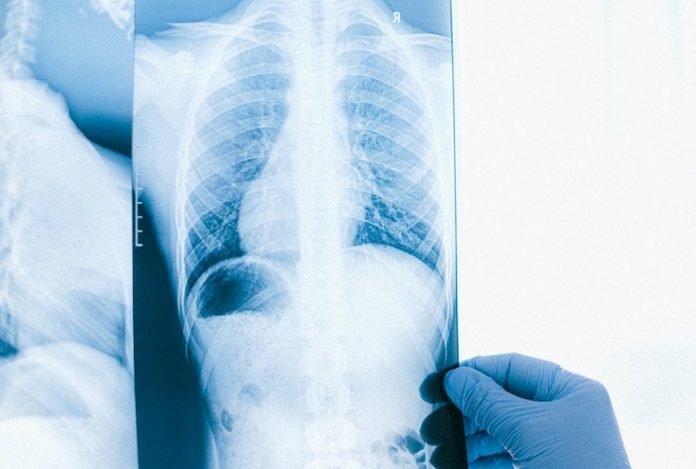
Scientists from the University of Oxford found that a special type of MRI showed lung abnormalities in patients who had previously had COVID-19, even those who had not been hospitalized with the illness.
These abnormalities are not obvious on conventional imaging, and in some people were detected up to a year after their initial COVID-19 infection.
The research is published in the journal Radiology and was conducted by Fergus Gleeson et al.
Beyond the acute respiratory symptoms of COVID-19 infection, which can result in severe illness, hospitalization and death, the medium and long‐term problems experienced by people following COVID‐19 can be considerable.
Symptoms can persist months after the initial infection. The presence of ongoing symptoms related to prior COVID-19 infection is known as a post-COVID-19 condition or long COVID.
Although over 200 symptoms have been reported, the most common are breathlessness, fatigue and brain fog.
In the study, the team used Hp-XeMRI, which has shown promise in detecting abnormalities of alveolar gas exchange—where oxygen moves from the lungs to the bloodstream and carbon dioxide passes from the blood to the lungs—even when CT scans and lung function tests were normal.
Hp-XeMRI enables the assessment of ventilation and gas exchange into red blood cells.
It provides regional information on pulmonary vasculature integrity and may be able to identify lung abnormalities not apparent on CT.
In long COVID, a breathing pattern disorder is commonly identified and contributes to breathlessness in a big proportion of patients.
However, whether there are additional reasons for their breathlessness remains unclear.
The team says using Hp-XeMRI may enable them to further understand the cause of breathlessness in long COVID patients, and ultimately lead to better treatments to improve this often-debilitating symptom.
The researchers said their next step is to expand their study to look at larger numbers of participants seen in dedicated post-COVID clinics at four U.K. centers.
In the meantime, they offer advice for those currently coping with the symptoms of long COVID.
They say the benefit of practical strategies, such as breathing control exercises and fatigue management should not be underestimated and are helping many patients struggling with lingering symptoms.
If you care about COVID, please read studies about people who need additional COVID-19 vaccine doses, and Pfizer vaccine can successfully treat COVID-19.
For more information about COVID, please see recent studies about the cause of persistent breathlessness after COVID-19, and results showing bark of neem tree may protect against COVID-19 variants.
Copyright © 2022 Knowridge Science Report. All rights reserved.



